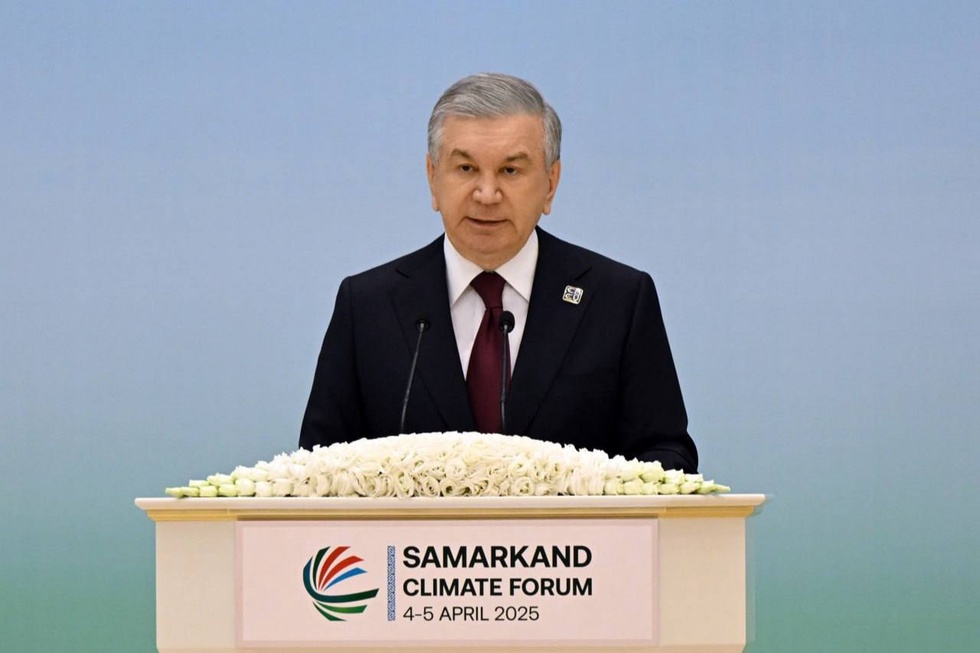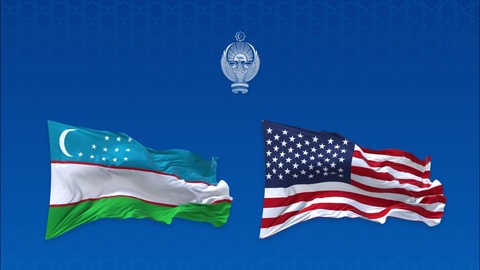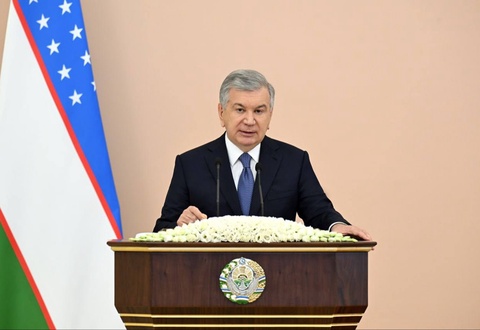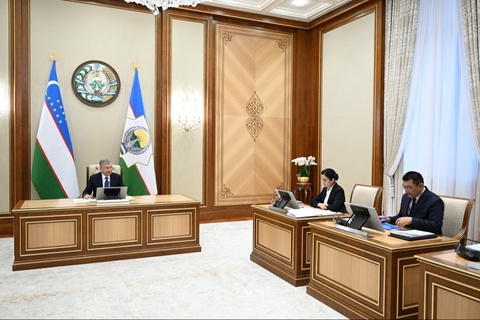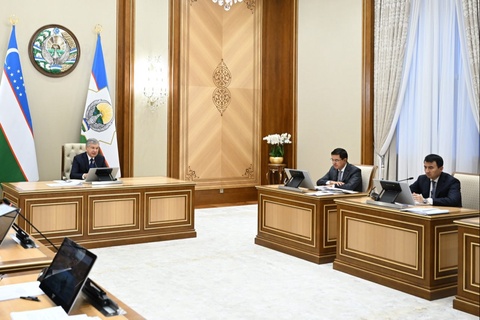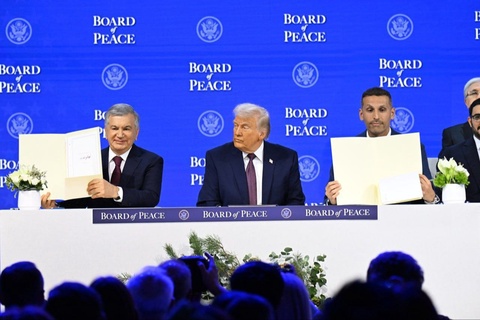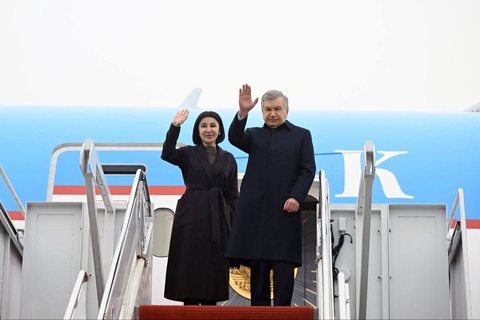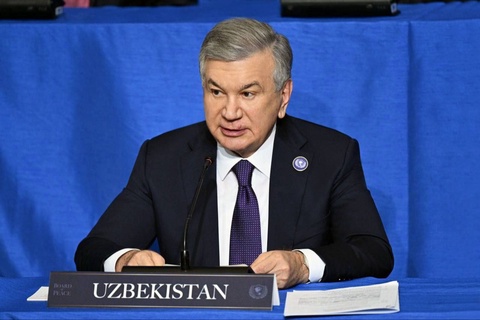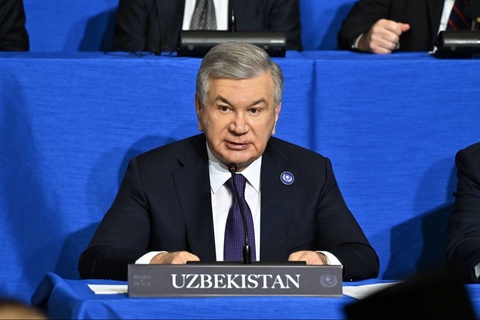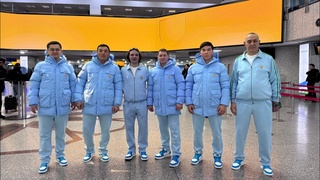The forum was attended by the President of the European Council António Costa, the President of the European Commission Ursula von der Leyen, the President of the Republic of Kazakhstan Kassym-Jomart Tokayev, the President of the Kyrgyz Republic Sadyr Japarov, the President of the Republic of Tajikistan Emomali Rahmon, the President of Turkmenistan Serdar Berdimuhamedov, the President of the European Bank for Reconstruction and Development Odile Renaud-Basso, the Executive Secretary of the United Nations Economic Commission for Europe Tatiana Molcean, the Executive Director of the UN-Habitat Programme Anacláudia Rossbach, the Executive Secretary of the United Nations Convention to Combat Desertification Ibrahim Thiaw and others.
United Nations Secretary-General António Guterres addressed the forum participants via video message.
The event brought together over 2,000 international guests, including heads of national and global environmental organizations, international institutions, experts, scientists, journalists, and business representatives.
In line with the agenda, the participants addressed pressing climate challenges facing Central Asia and discussed issues of environmental sustainability, green economic development, and regional cooperation in combating climate change.
The President of Uzbekistan expressed satisfaction that the broad international representation at the forum serves as clear evidence of the global community’s commitment to joint efforts in seeking practical solutions to the most pressing issues of sustainable development.
It was emphasized that, for the first time last year, the average global temperature rose by more than 1.5 degrees Celsius. The past decade has become the hottest in the history of meteorological observations.
“As a result, we are all now experiencing the negative impact of climate crises – rising incidents of wildfires and desertification, the shrinking of glaciers, increasing water scarcity, and deteriorating air quality”, the President of Uzbekistan stated.
The countries of the region have developed and unanimously approved a Climate Change Adaptation Strategy for Central Asia.
The successful cooperation with European partners was noted, particularly within programs aimed at mitigating the consequences of the Aral Sea desiccation, promoting rational water use, and expanding clean energy sources. This partnership plays a crucial role in supporting the green development of Central Asia.
In this context, Uzbekistan expressed a strong interest in further deepening practical cooperation with the European Union – a global leader in advancing and protecting climate action initiatives.
It was emphasized that climate change issues are inextricably linked to food and energy security.
Fertile land is rapidly decreasing, with over 20 percent of the region’s total land area currently affected by degradation. A quarter century later, crop yields may decrease by a third.
“In this regard, I believe it is vital to unite our scientific potential to enhance the adaptability of forestry and the agricultural sector, as well as to strengthen food security within the framework of the Horizon Europe program”, the President stated.
He informed participants about the measures Uzbekistan is taking to reduce the area of degraded land and mitigate the effects of climate change. A large-scale greening initiative is being implemented under the “Yashil Makon” (Green Space) program. Additionally, drought-resistant plants have been planted on over 2 million hectares of desert land in the Aral Sea region.
It was proposed to hold an annual Regional Tree-Planting Campaign titled “Green Belt of Central Asia” on the eve of the spring holiday of Navruz.
President Shavkat Mirziyoyev also emphasized the importance of transitioning to a resource-efficient and environmentally friendly model of economic development.
One of the key areas in this regard is green energy.
Uzbekistan plans to increase the share of energy generated from renewable sources to 54 percent within the next five years. This will enable the country to reduce greenhouse gas emissions by nearly 16 million tons.
“I would like to emphasize that we will make every effort to ensure the early fulfillment of Uzbekistan’s commitments to reduce greenhouse gas emissions by 35 percent under the Paris Agreement”, the Head of state stated.
As a continuation of efforts in this direction, a proposal was put forward to establish a Secretariat for the European Union’s “Water – Energy – Climate Change” Initiative in Tashkent. The Secretariat would serve to mobilize financing, technology, and expertise.
Particular attention was also given to the importance of the Green Development Concept for the region, which will be presented during the current forum.
Addressing the issue of rational water use, the President of Uzbekistan stated that by 2040, Central Asian countries are expected to face a high level of water stress due to the declining flow of the Amudarya and Syrdarya rivers.
It was emphasized that efforts are underway to conserve water resources by lining irrigation canals with concrete and establishing an industrial base for the production of water-saving technologies. These technologies have already been implemented on nearly half of Uzbekistan’s irrigated lands, amounting to almost 2 million hectares. As a result of these measures, approximately 8 billion cubic meters of water were saved last year.
“We call for joint efforts to launch a Regional Program for the implementation of water-saving technologies across Central Asia”, Shavkat Mirziyoyev stated.
To facilitate expert discussions on these issues, an International Forum on Water-Saving Technologies in the Aral Sea region is planned.
Interest was also expressed in close cooperation with the European Union under the Copernicus Programme, which aims at continuous satellite monitoring of glacier conditions and early detection of risks to the region’s mountain ecosystems.
The Climate Residency, established within the framework of the Green University in Tashkent, can serve as a joint scientific and expert platform for studying and monitoring climate processes in Central Asia.
In addition, on April 5, the Aral Cultural Summit will commence in Nukus. This event aims to draw attention to the region’s environmental issues through artistic initiatives.
In concluding his address, the President of Uzbekistan once again reminded the audience of the shared responsibility: “to do everything so that future generations live in a sustainable, safe, and prosperous world”.
“To achieve this, it is essential to strengthen dialogue and align the efforts of all nations united by a common and noble goal”, the President concluded.


